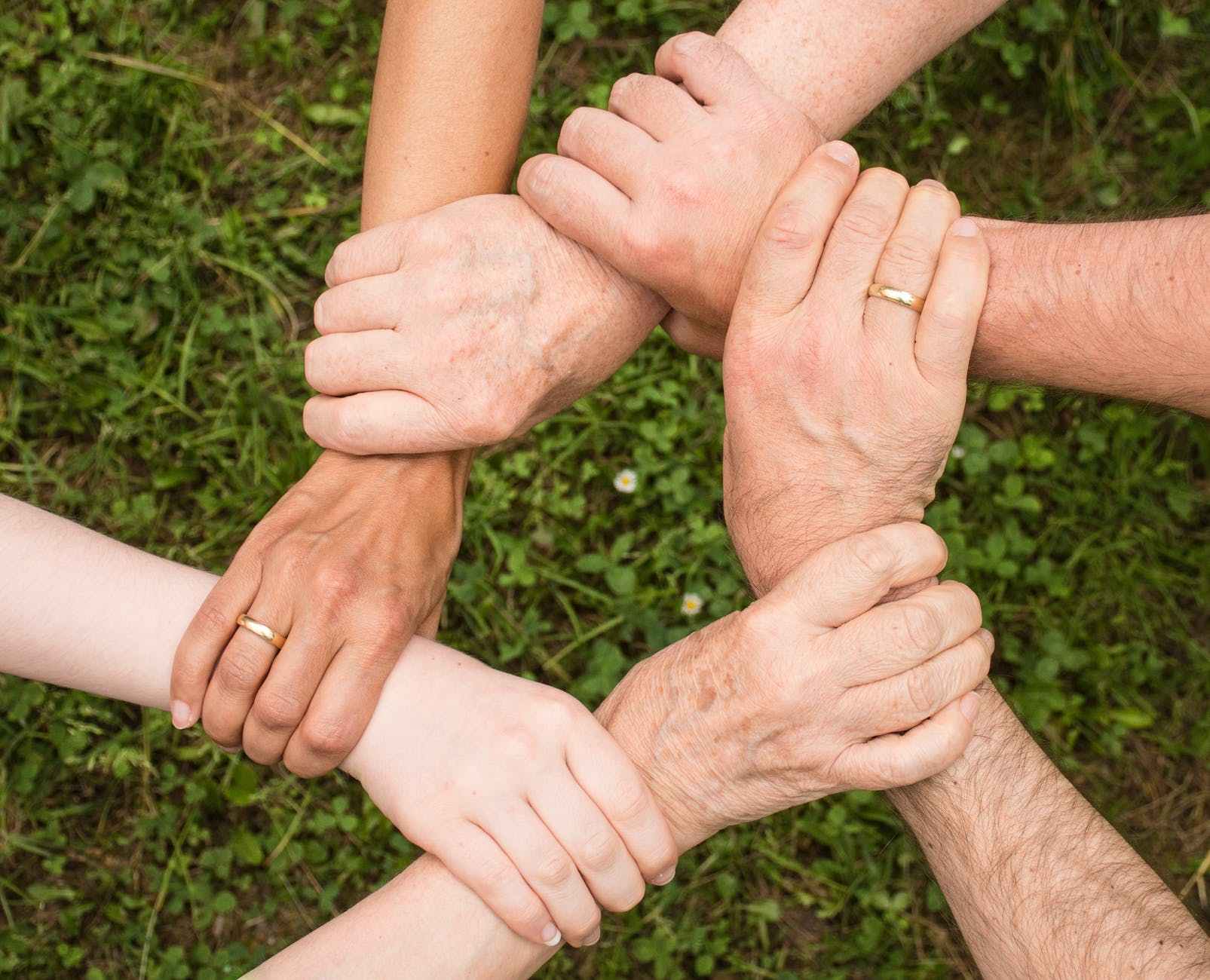Tips for Who Should Be In Your Grief Support System
ground group growth hands
Grief is never easy, but your grief can become easier if you find the right support, encouragement, comfort and knowledge. You need a good support system to help supply you with the help you need. You should not isolate or try to do grief all by yourself.
How do you find the right people for your support system? The answer is in identifying and securing for yourself supporters and grief mentors – people with whom you can share your grief experiences, thoughts and feelings. Supporters are people who can give you time, care and support. Grief mentors are those who have experienced death and grief in their lives and can be a source of encouragement, support, care and knowledge for you in your grief journey.
What should you look for candidates for your support system?
People who make you feel safe, comfortable and cared for. You want to make sure these people can keep your personal information confidential. Avoid anyone who you know likes to gossip. Find people you can trust.
People who are good listeners. You will not want to be with people who are judgmental or prone to give unsolicited advice. Spend as little time as possible with those people who tell you what to do. It’s okay to take advice, but don’t let people try to direct you or tell you that you are grieving in the wrong way. You want to find people who will care about what you say, think and feel. You want people who will hear you and let you know you have been heard and understood.
People who don’t immediately resort to trite clichés, inspirational quotes and scripture. Let your friends, family members and grief mentors know what you need and what things are comforting or not comforting to you.
People who are stable and living life in healthy ways. No person will have the perfect family, relationships, career and life. Look for someone who seems to be successful in living and enjoying their life.
People who have been a help to you or others. Pick people who always seem to think about others first and don’t need the spotlight to be on them all the time. Avoid the person who turns your discussions into his or her own grief processing session. You also want to avoid the person who seems to always be saying they have had it worse in their grief or in their life. If they are always comparing their grief to yours and not really listening, avoid them.
People who you admire and respect.
People who have not only knowledge but common sense. People who you see make wise decisions.
People who are patient and understanding.
People who are warm, caring and would be willing to take a phone call from you anytime of the day or night.
People who can make you feel better just by being present.
Other mourners who are farther along in their grief journey than you are. Ideally you want people who have at least one or more years of mourning under their belt. You can learn from their experience, example and mistakes.
Mourners who you feel may have a similar grief experience to yours. (It is not necessary that they have the same exact type of loss or grief circumstances that you have experienced, but if they do, that would be helpful.)
What to Remember When Developing Your Support System:
Potential supporter or grief mentor who meets all of these qualifications is going to be a rare, special person indeed. If you do find a person who meets all these qualifications, you will be very fortunate.
Don’t wear out anyone you pick as a supporter or grief mentor by monopolizing their time. Don’t become clingy and overly dependent upon the person. But at the same time, you do want people who have time to help you and that you can call on whenever you are in need.
The quality of your support system is more important than the quantity of people in your support system.
Keep contact names and information close by.
Who Can Be in Your Support System?
Family members
Church family members
Co-workers/Colleagues
Friends
Support group members
Helping professionals
Written by Larry M. Barber, LPC-S, CT author of the grief survival guide “Love Never Dies: Embracing Grief with Hope and Promise” available online at Amazon, Barnes & Noble or Christianbook.com.
The grief survival guide is also available in Spanish as “El Amor Nunica Muere: Aceptando el Dolor con Esperanza y Promesa” on Amazon.com.
FOR INFORMATION ON SCHEDULING COUNSELING SERVICES WITH LARRY BARBER https://taylorcounselinggroup.com/larry-barber .
